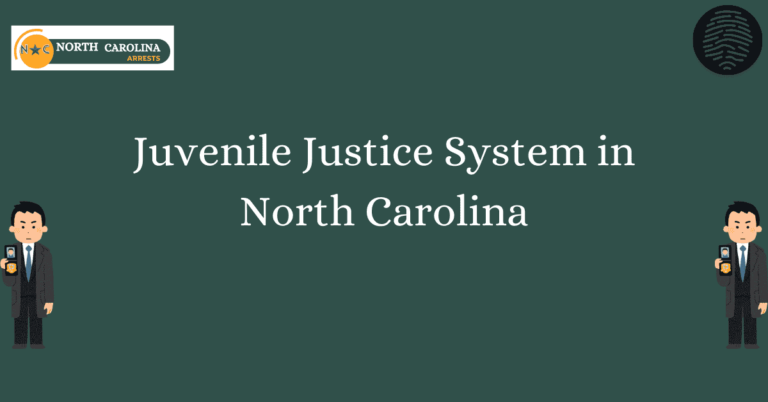Pretrial Release in North Carolina: Your Options
Pretrial release in North Carolina offers individuals various options to navigate the legal system before their trial. From bail to conditional release, understanding these choices is crucial for anyone involved in a legal case in the state. Each option comes with its own set of rules and requirements, so knowing your alternatives can make a significant difference in your legal journey.
In North Carolina, pretrial release options provide individuals with the opportunity to address their legal matters while awaiting trial. Whether through a bond or other conditions set by the court, these choices can impact the outcome of your case. It’s essential to explore and comprehend the available options to make informed decisions and ensure the best possible outcome in your legal proceedings.
Overview of Pretrial Release in North Carolina
Pretrial release in North Carolina refers to the process by which individuals accused of a crime are released from custody while awaiting their trial. This allows them to resume their daily activities and prepare for their legal proceedings. Understanding the different types of pretrial release options available is essential for those navigating the legal system in North Carolina.
Types of Pretrial Release Options Available
There are several pretrial release options available in North Carolina, including bail and conditional release. A bail is a common option that allows individuals to secure their release by paying a certain amount of money to the court. Conditional release, on the other hand, imposes specific requirements and regulations that individuals must follow while awaiting trial.
Bail: What You Need to Know
Bail is a financial arrangement that a bail bond agent makes on behalf of the defendant. This allows the accused individual to be released from custody until their trial in exchange for a monetary payment. The amount of bail is set by the court and is intended to ensure that the defendant will appear for their trial.
Conditional Release Requirements and Regulations
Conditional release involves specific requirements that individuals must meet in order to be released from custody. These requirements may include regular check-ins with a court officer, drug testing, or attending counselling sessions. Failure to comply with these conditions can result in re-arrest and additional legal consequences.
Impact of Pretrial Release Choices on Legal Proceedings
The pretrial release choices individuals make can have a significant impact on their legal proceedings. It is important to understand the effects of various pretrial release options in order to make informed decisions that can positively influence the outcome of the case.
The Effects of Various Options
Different pretrial release options can have different effects on legal proceedings. For example, individuals released on bail may have more freedom to prepare for their trial, while those on conditional release must adhere to specific requirements. Understanding these effects can help individuals navigate the legal system more effectively.
Importance of Informed Decision-Making
Making informed decisions about pretrial release options is crucial for individuals facing criminal charges in North Carolina. By understanding the impact of their choices on legal proceedings, individuals can make decisions that align with their best interests and increase their chances of a favourable outcome.
Navigating the Legal System with Pretrial Release
Navigating the legal system with pretrial release requires a strategic approach and careful consideration of available options. By following tips and guidelines, individuals can make the most of their pretrial release choices and ensure they are prepared for their upcoming legal proceedings.
Tips for Making the Most of Your Options
When navigating the legal system with pretrial release, it is important to communicate openly with legal counsel, adhere to all conditions of release, and stay informed about the progress of the case. By following these tips, individuals can navigate the legal system with confidence and increase their chances of a positive legal outcome.
Frequently Asked Questions
When it comes to Pretrial Release in North Carolina, we understand that you may have several questions. Below, we have compiled a list of common queries to provide you with detailed explanations for each.
What is Pretrial Release?
Pretrial Release refers to the process by which individuals accused of a crime are released from custody while awaiting trial. This allows them to resume their daily lives under certain conditions set by the court.
What are the different options for Pretrial Release in North Carolina?
In North Carolina, individuals awaiting trial have several options for Pretrial Release, including release on their recognizance, cash bail, secured bond, unsecured bond, and electronic monitoring. Each option comes with its own set of requirements and implications.
How does the court determine the type of Pretrial Release an individual receives?
The court considers various factors when determining the type of Pretrial Release, including the severity of the alleged crime, the individual’s criminal history, ties to the community, and the likelihood of appearing in court. The goal is to ensure public safety while respecting the rights of the accused.
Can the conditions of Pretrial Release be modified?
Yes, the conditions of Pretrial Release can be modified based on changing circumstances. The court may consider requests for modifications, such as adjusting bond amounts or altering supervision requirements, depending on the situation.
What happens if an individual violates the conditions of their Pretrial Release?
If an individual violates the conditions of their Pretrial Release, they may face consequences such as revocation of release, additional charges, or a warrant for their arrest. It is essential to comply with the set conditions to avoid further legal troubles.
Are there aids for Pretrial Release in NC?
Yes, there are resources available to help individuals understand and navigate the Pretrial Release process in North Carolina. Legal aid organizations, public defenders, and private attorneys can provide guidance and support to ensure that individuals know their rights and options.







